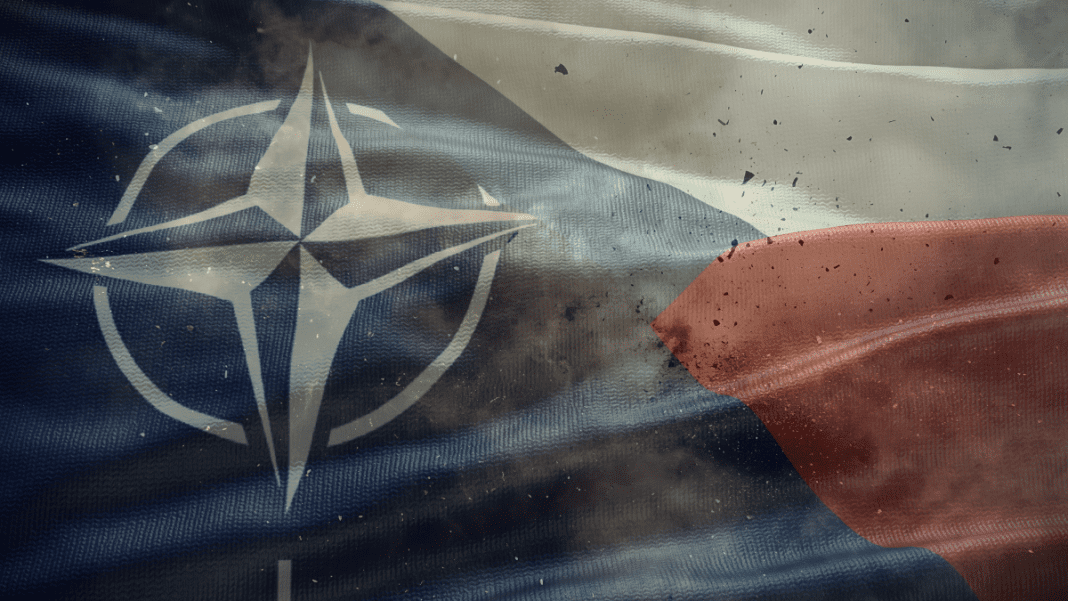Germany has issued a serious warning that Russia may be preparing for the option of waging war on Nato by 2029. This alert comes at a time when peace talks surrounding the war in Ukraine are gaining momentum, and the United States is working to improve a key proposal meant to help stop the conflict.
Germany Sounds Alarm as War Concerns Rise
Officials in Berlin shared a series of messages online explaining that intelligence teams believe Russia is building the capability to attack Nato countries in the coming years. Germany stressed that this does not mean a war will definitely happen, but Russia is clearly creating the ability to do so. The message urged Europe and the wider Western alliance to remain united and strong so they can deter any future aggression.
At the same time, Ukraine and the United States have made progress on a revised peace proposal. The plan could help bring an end to Europe’s largest war since the Second World War. Ukrainian officials said the updated version of the plan is “significantly better” for Kyiv compared with the earlier draft.
Close Call Near NATO Border — Russian Strike Sets Turkish LPG Ship Ablaze, Romania Orders Evacuation
The original US proposal had sparked criticism because some parts appeared too close to Moscow’s demands. However, after intense discussions, the latest version has been reshaped to better reflect Ukraine’s interests. Officials said the changes now create a more balanced plan that avoids rewarding Russia for its actions in the war.
Ukrainian representatives confirmed that they have now reached a “common understanding” with Washington on the new draft. This breakthrough has lifted hopes that diplomacy may move faster in the coming days.
US and Ukraine Refine Peace Plan While War Tensions Intensify
The United States has been shaping a 28-point framework for the peace plan, and over the weekend, US and Ukrainian teams reviewed each part of it and made changes that more clearly address Ukraine’s concerns.
A senior US official will travel to Kyiv soon to continue the talks. Both sides hope the revised proposal will create a stronger foundation for achieving an immediate ceasefire and reducing further war-related damage. They aim to put steps in place that bring calm while preparing discussions for longer-term stability.
However, Russia has strongly objected to the changes. Officials in Moscow said they supported the earlier US outline but now argue that the updated version creates a “fundamentally different” situation. They warned that they may reject the new draft unless the United States consults Russia directly.
Trump threatens NATO with ultimatum: no unity, no sanctions on Russia
Russian representatives also accused several European countries of influencing the United States in ways that harm negotiation efforts. Washington has not publicly addressed Russia’s concerns, but US and Russian officials did meet in Abu Dhabi earlier this week, showing that communication continues.
Meanwhile, Germany repeated that any peace plan must use the current front line as its basis. Berlin said Russia must not gain territory through war and must not receive any reward for continuing its attacks on Ukraine. Germany also emphasized that it is ready to take on more responsibility in foreign and security policy as Europe faces its most serious war-related threats in decades.
Officials emphasized a key message shared across many nations: Ukraine wants peace, and the world wants peace, but whether peace is possible depends on Russia stopping its attacks. A ceasefire, they noted, can only happen if Russia halts its actions immediately and without conditions.
Russian Strikes Continue as Talks Press On
Even with diplomatic efforts underway, strikes linked to the war continued across Ukraine. Russian attacks hit multiple cities this week, causing damage, injuries, and fear among residents already exhausted by years of conflict.
In Zaporizhzhia, a major missile strike damaged at least seven high-rise buildings. Local authorities confirmed that 12 people were taken to hospital. Emergency crews worked late into the night searching through damaged floors and helping families reach safety.
In the capital, explosions shook residential neighbourhoods shortly after midnight. Drones and missiles struck several buildings, causing fires and severe destruction. City officials reported at least seven deaths, and many more were treated for injuries caused by falling debris and flames.
Thick smoke rose over the city, glowing red and orange due to the fire and the bright lights of air defence systems trying to stop incoming weapons. Many families ran to metro stations to take shelter, waiting underground until the situation calmed. Witnesses described frightening scenes of sirens, shaking windows, and emergency vehicles rushing through the streets.
The war, which began with Russia’s full-scale invasion in 2022, shows no signs of slowing. The ongoing strikes, combined with Germany’s warning about Russia’s long-term intentions, have increased concerns across Europe.
As diplomatic efforts continue, governments are watching both the battlefield and the negotiation table closely. The warnings about a possible future war with Nato have added urgency to talks, reminding everyone that even while peace discussions move forward, the wider security picture in Europe remains deeply troubled.

